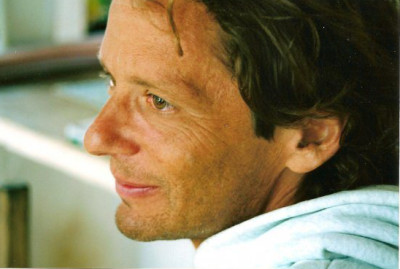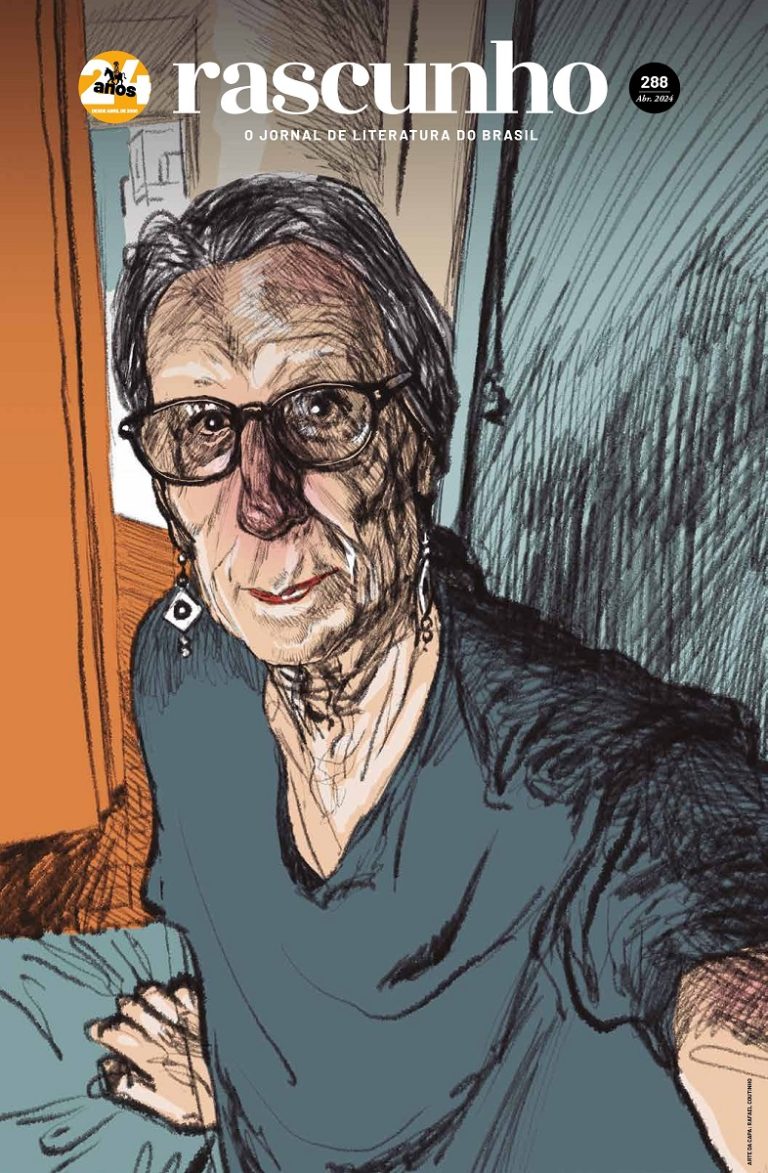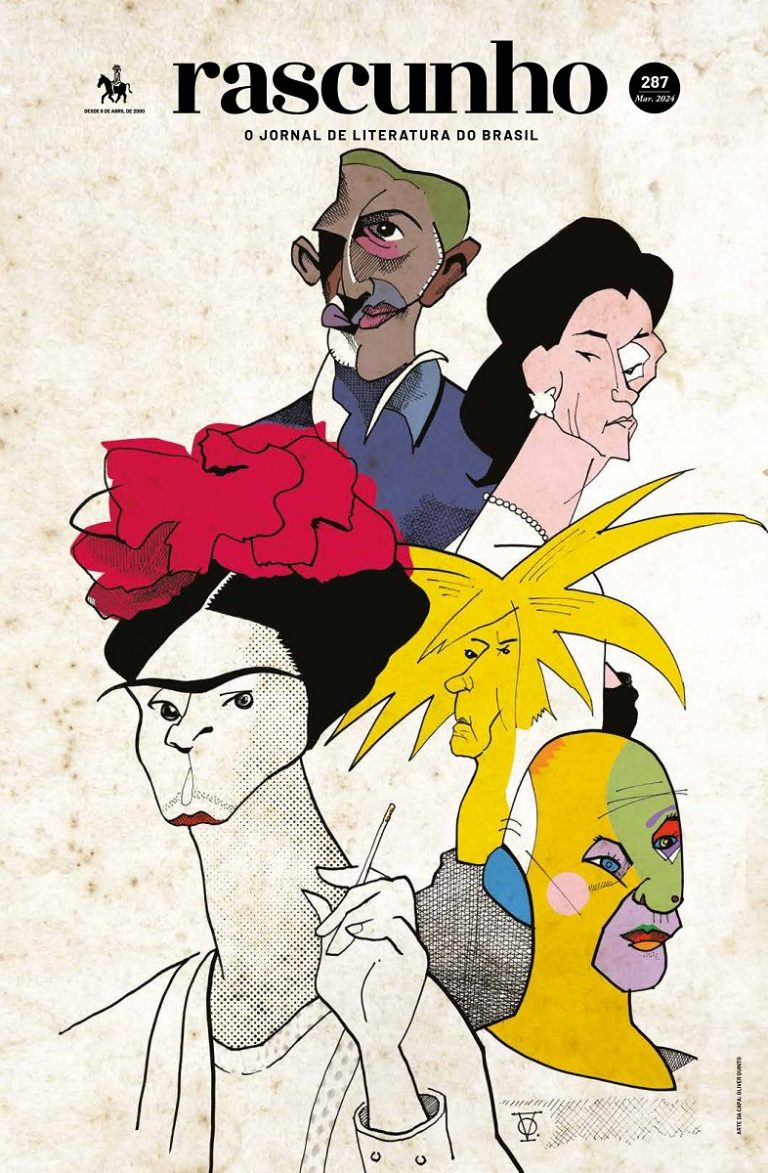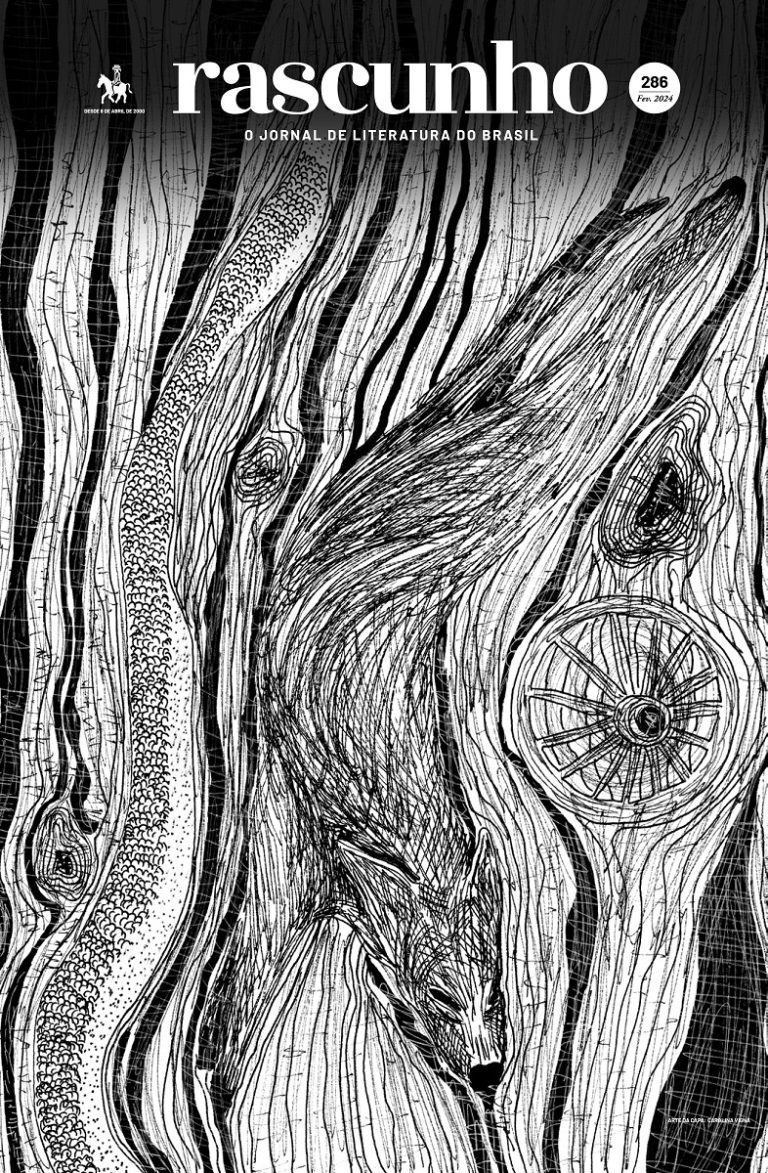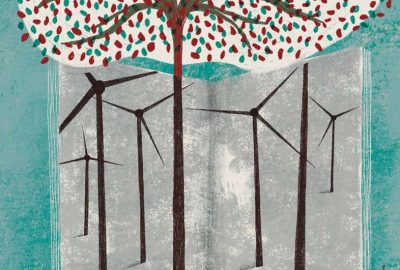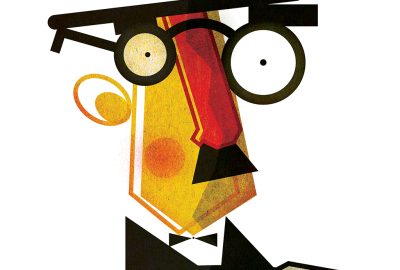Tradução e seleção: André Caramuru Aubert
Irkalla’s white caves
I believe that a young woman
Is standing in a circle of lions
On the other side of the sky.
In a little while I must carry her the flowers
Which only fade here; and she will not cry
If my hands are not very full.
*
Fiery antlers toss within the forests of heaven
And ocean’s plaintive towns
Echo the tread of celestial feet.
O the beautiful eyes stare down…
What have we done that we are blessed?
What have we died that we hasten to God?
*
And all the animals are asleep again
In their separate caves.
Hairy bellies distended with their kill.
Culture blubbering in and out
Like the breath of a stranded fish.
Crucifixion in wax. The test-tube messiahs.
Immaculate fornication under the smoking walls
Of a dead world.
I dig for my death
in this thousand-watt dungheap.
There isn’t even enough clean air
To die in.
O blood-bearded destroyer!
In other times…
(soundless barges float
down the rivers of death)
In another heart
These crimes may not flower…
What have we done that we are blessed?
What have we damned that we are blinded?
*
Now, with my seven-holed head open
On the air whence comes a fabulous mariner
To take this place among the spheres —
The air which is God
And the mariner who is sleep — I fold
Upon myself like a bird over flames. Then
All my nightbound juices sing. Snails
Pop out of unexpected places and the long
light lances of waterbulls plunge
into the green crotch of my native land.
Eyes peer out of the seaweed that gently sways
Above the towers and salt gates of a lost world.
*
On the other side of the sky
A young woman is standing
In a circle of lions —
The young woman who is dream
And the lions which are death.
As cavernas brancas de Irkalla
Eu acredito que uma jovem
Está de pé, diante de um círculo de leões
Do lado de lá do céu.
Logo mais eu levarei para ela as flores
Que aqui apenas murcham; e ela não irá chorar
Se minhas mãos não estiverem muito cheias.
*
Impetuosos chifres se agitam nas florestas do céu
E as tristes cidades oceânicas
Ecoam os passos dos pés celestiais.
Oh, as belas estrelas olham para baixo…
O que foi que fizemos para sermos abençoados?
De que morte morremos que corremos para Deus?
*
E todos os animais estão novamente dormindo
Em suas próprias cavernas.
Barrigas peludas distendidas com o que mataram.
Suspirando ar para dentro e para fora
Como a respiração dos peixes encalhados.
Crucificação em cera. Os messias de tubo de ensaio.
Fornicação imaculada junto às paredes defumadas
De um mundo morto.
Eu escavo buscando minha morte
neste monte de esterco de mil watts.
Nem mesmo há ar limpo o bastante
No qual morrer.
Oh, destruidor de barba ensanguentada!
Em outros tempos…
(silenciosas barcaças flutuam
descendo os rios da morte)
Num outro coração
Esses crimes talvez não floresçam…
O que foi que fizemos para sermos abençoados?
Que danação recebemos para ficarmos cegos?
*
Agora, com minha cabeça e seus sete buracos abertos
Neste ar de onde chega um fabuloso marinheiro
Para levar este lugar para junto às esferas —
O ar, que é Deus
E o marinheiro, que é o sono — eu me dobro
Sobre mim mesmo como um pássaro sobre as chamas. E então
Cantam todos os meus fluídos noturnos. Caracóis
Brotam de lugares inesperados, e as longas
lanças de luz dos duendes da água mergulham
nas verdes encruzilhadas de minha terra natal.
Olhos espiam sob as algas que suavemente dançam
Acima das torres e dos portões de sal de um mundo perdido.
*
Do lado de lá do céu
Uma jovem está de pé diante
De um círculo de leões —
A jovem, que é sonho
E os leões, que são morte.
…..
Biography of southern rain
Rain’s all right. The boys who physic
through town on freights won’t kick
if it comes; they often laugh then, talking
about the girl who lived down the block,
and how her hair was corn-yellow gold
that God could use for money. But rain,
like memory, can come in filthy clothes too.
The whole upstairs of space caved in that night;
as though a drunken giant has stumbled over the sky —
and all the tears in the world came through.
It was that. Like everyone hurt crying at once.
Trees bent to it, their arms a gallows for all
who had ever died in pain, or were hungry, since
the first thief turned to Christ, cursing…
Then, out of the rain, a girl’s voice — her hand
on my arm. “Buddy, help me get this train.”
Her voice was soft… a cigarette after coffee.
I could hear the clickdamnitclick of the wheels;
saw the headlight writing something in the rain.
then I saw her face — its bleeding sores — I didn’t
ask her if she had ever been in love
or had ever heard of Magdalen and Mary
or why she wanted to leave that town.
Do you see what I mean about the rain?
Biografia da chuva de sul
A chuva é suave. Os garotos que em vagões
atravessam a cidade, não se incomodam
se ela cai; eles muitas vezes riem, falando
da garota que vive na rua de baixo,
e de como seu cabelo era tão cor de milho dourado
que Deus poderia usá-lo como dinheiro. Mas a chuva,
como a memória, também pode ser suja.
Todo o andar de cima do cosmo escavado naquela noite;
como se um gigante bêbado tivesse tropeçado sobre o céu —
e todas as lágrimas do mundo tivessem despencado.
Foi isso. Como se todos os feridos chorassem ao mesmo tempo.
Árvores se inclinaram, seus braços o patíbulo para todos os
que morreram sofrendo, ou passaram fome, desde que
o primeiro ladrão olhou para Cristo, blasfemando…
E então, vinda da chuva, uma voz de garota — sua mão
em meu braço. “Cara, me ajude a pegar este trem.”
Sua voz era doce… um cigarro depois do café.
Eu podia ouvir o clicqueclaquedanado das rodas;
vi os faróis do trem escrevendo na chuva.
e então eu vi o rosto dela — suas feridas — e não perguntei
se já se apaixonara antes
ou se já ouvira falar em Madalena ou em Maria
ou por que é que ela queria sair daquela cidade.
Você entende o que eu digo sobre a chuva?
…..
The lions of fire shall have their hunting
The lions of fire
Shall have their hunting in this black land
Their teeth shall tear at your soft throats
Their claws kill
O the lions of fire shall awake
And the valleys steam with their fury
Because you are sick with the dirt of your money
Because you are pigs rooting in the swill of your war
Because you are mean and sly and full of the pus of your pious murder
Because you have turned your faces from God
Because you have spread your filth everywhere
O the lions of fire
Wait in the crawling shadows of your world
And their terrible eyes are watching you
Os leões de fogo merecem ter sua caça
Os leões de fogo
Devem ter sua caça nesta negra terra
Os dentes deles devem rasgar suas gargantas macias
As garras, matar
Ó, os leões de fogo devem despertar
E os vales ferverão com sua fúria
Porque vocês estão doentes com a sujeira do seu dinheiro
Porque vocês são porcos escarafunchando na lama da sua guerra
Porque vocês são maus e astutos e cheios do pus do seu piedoso assassino
Porque vocês viraram a cara para Deus
Porque vocês espalharam sua sujeira por todos os cantos
Ó, leões de fogo
Aguardam nas sombras rasteiras do seu mundo
Com aqueles olhos terríveis vigiando vocês
…..
The Appian Way
The power!
The power alone.
A road is nothing. A people are nothing.
You will remember that six thousand
Soldiers of Sparta were nailed to posts
And crucified
Along this majestic floor of stone.
But you will not remember the shadows
They made… or their cries!
But I think of the road too.
Of the stones.
The legions of Marius, of Sulla,
Lucullus, Crassus — “the Roman
Might”… I think of the stones,
Where they came from, who shaped
Their edges. I wonder what man
Stood in the howling of Rome,
And bent down to touch the stones.
He was a man of power.
A Via Ápia
O poder!
Só o poder.
Uma estrada é nada. Um povo é nada.
Você se lembrará que seis mil
Soldados de Esparta foram pregados a postes
Crucificados
Ao longo deste majestoso piso de pedras.
Mas você não se lembrará das sombras
De seus corpos… ou dos lamentos!
Mas eu também penso na estrada.
Nas pedras.
As legiões de Mário, de Sula,
Lúculo, Crasso — “o Poder de
Roma”… penso nas pedras,
De onde vieram, quem poliu
Suas arestas. Eu imagino quem foi o homem
Que, diante do uivo de Roma,
Se inclinou para tocar as pedras.
Ele era um homem poderoso.
…..
Two ghosts together
She walks beside the river
The birds of shade
Fastening their claws
Into her shoulders and hair
And ever more awed
By her sadness
Evening’s arcades whisper like muffled wounds
Under her sorrowing feet
Dark words of the river
Singing to the leaf
Long ago
As a maiden, she walked
Here
And all the woodland
Was amove with joys of
Gathering love
Hair, birds… O golden
Sheaf! O winged thief
Dois fantasmas juntos
Ela caminha junto ao rio
Os pássaros sombrios
Prendem suas garras
Em seus ombros e seu cabelo
E cada vez mais impressionadas
Por sua tristeza
As arcadas da tarde suspiram como feridas mudas
Sob seus pés doloridos
Negras palavras que o rio
Canta para as folhas
Tempos atrás,
Como uma donzela, ela caminhou
Até aqui
E todo o bosque
Estava agitado com a
Felicidade da festa de amor
Cabelo, pássaros, Ó feixe
Dourado! Ó ladrão alado
…..
Beautiful you are
Cathedral evening, tinkle of candles
On the frosted air
Beautiful you are
Beautiful your eyes, your lips, your hair!
Ah still they come
Evenings like chalices
Where little roofs and trees drink
Until a rude hand
Shatters them, one by one
O beautiful you are
My own
Land of holiness, unblemished grace
Springtime
In this winter place
O in the candles there
More beautiful
Than any legend’s face
Your eyes, your lips, your hair!
Linda você é
Noite na catedral, velas acendendo
No ar gelado
Linda você é
Lindos os seus olhos, seus lábios, seu cabelo!
Ah, ainda vêm
As noites, como cálices
Onde diminutos telhados e árvores bebem
Até que uma mão brutal
Os despedacem, um a um
Ó, que linda você é
Minha
Terra prometida, graça imaculada
Primavera
Neste palácio invernal
Ó, nas velas ali há
Mais beleza
Do que na face de qualquer lenda
Seus olhos, seus lábios, seu cabelo!



